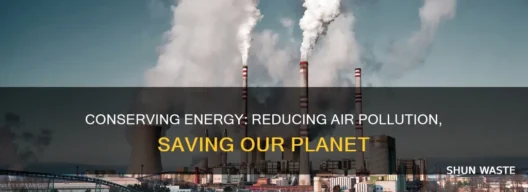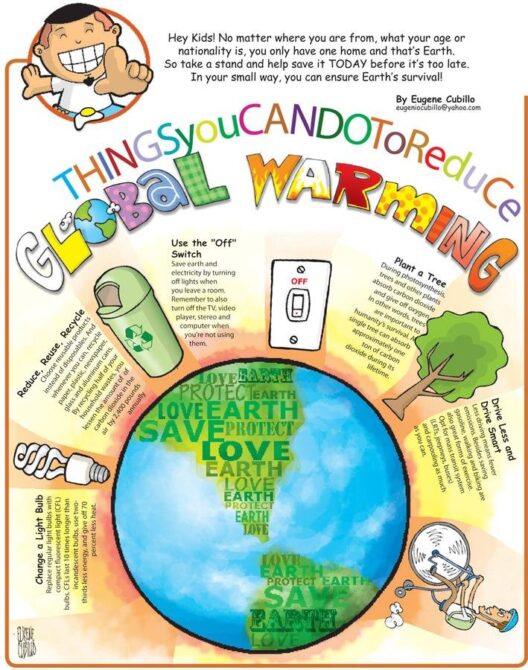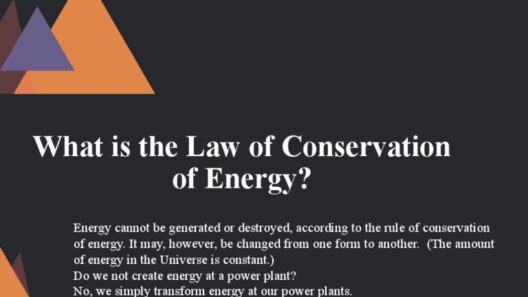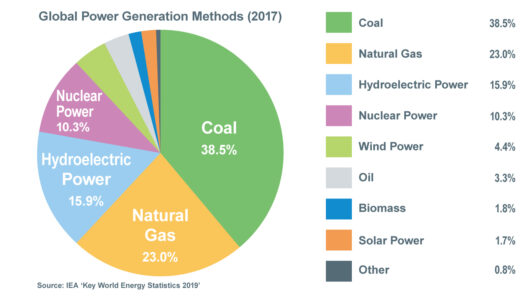Energy conservation is not merely a practice but an ethos that reverberates through every realm of existence, from our daily habits to the vast cosmic ballet of the universe. It holds a mirror to our collective consciousness, reflecting our choices as stewards of this planet. Embarking on the journey of energy conservation offers not only tangible benefits for our environment but also a deeper understanding of our interconnectedness with the world around us.
In the microcosm of our daily lives, energy conservation begins at home. Imagine your residence as a living organism, breathing and pulsating with the rhythms of life. Just as we manage our own vitality by adopting healthy habits, so too must we nurture our homes. Simple changes can significantly reduce energy consumption. Swapping incandescent bulbs for LED lights illuminates our spaces while yielding remarkable savings. Each flick of the switch becomes an act of mindfulness; every bulb that emits light with greater efficiency serves as a testament to our commitment to conserving precious resources.
The average household comprises various energy-consuming devices, often operating in tandem like a symphony orchestra. In this ensemble, refrigerators hum, televisions flicker, and computers whir, creating a cacophony of energy usage. By purchasing energy-efficient appliances, we assume the role of a conscientious conductor, harmonizing the demands of modern living with the necessity of sustainability. The Energy Star certification becomes our guiding star, illuminating the path toward greener choices.
Yet, energy conservation stretches far beyond the boundaries of our homes. As we step outside, we encounter the numinous beauty of nature’s bounty. The sun, with its boundless luminescence, becomes a vital partner in our quest for sustainability. Harnessing solar energy is akin to capturing the very essence of the cosmos. By investing in solar panels, we transform our rooftops into small-scale power plants, generating electricity that sustains not only our homes but also the environment. This act transcends mere utility; it embodies a fusion of personal responsibility and global stewardship.
Moreover, the transportation sector presents another arena rife with opportunities for conservation. Each vehicle on the road is a vessel carrying not just passengers but also the carbon footprint of its journey. By opting for public transit, cycling, or walking, we unleash a tidal wave of change, akin to an intricate dance of sustainability. The rhythm of traffic ebbs and flows in a more harmonious fashion when we collectively embrace these alternatives. Additionally, electric vehicles emerge as the harbingers of a cleaner future, ushering us into an era where mobility does not incur ecological debts.
In the grander tapestry of existence, the conservation of energy serves as a poignant reminder of our place within the universe. Just as celestial bodies revolve around a shared gravitational force, so too must we orbit around the principles of sustainability. The universe operates on the law of conservation of energy; it is a cycle of transformation, where energy cannot be created nor destroyed, only altered from one form to another. This principle mirrors our responsibility to redirect our energy consumption toward sources that replenish rather than deplete.
As we delve deeper into the tapestry of energy conservation, we must also consider the societal implications of our collective actions. Energy conservation is a social imperative, a thread woven into the fabric of our communities. Education and awareness campaigns act as catalysts, igniting the spark within individuals to take action. Community gardens, local renewable energy projects, and shared resources foster collaboration and innovation that resonate far beyond individual efforts. It is in these communal endeavors that we witness the birth of resilience, a collective consciousness driving towards a sustainable future.
Each act of conservation ripples through space and time, akin to the flutter of a butterfly’s wings provoking storms on distant shores. The environmental benefits are indisputable: reduced greenhouse gas emissions, less pollution, and the preservation of ecosystems create an intricate web of life that flourishes in tandem with our well-being. By curbing our energy usage, we align ourselves not only with the ecological balances of our planet but also with the health of future generations. They will inherit the legacy that we choose to cultivate today.
Exploring the metaphorical depths of energy conservation also reveals the existential truths nestled within our choices. The act of conserving energy becomes an affirmation of life itself, a dedicated stance against the nihilistic tide of wastefulness. It challenges us to redefine abundance—not in terms of consumption but in the richness of sustainable living. As we reflect upon our existence, the crucial question arises: what kind of legacy do we wish to leave behind?
In closing, energy conservation transcends the mundane; it is an intricate dance between our lifestyle choices and the delicate ecosystems that sustain us. Anchored by principles of mindfulness and responsibility, we become ambassadors of change. The quest for energy conservation resonates deeply, echoing throughout our lives and the universe, beckoning us to become active participants in the symphony of existence. Together, through our everyday actions, we have the power to turn down the volume on wastefulness and tune into the transformative melody of sustainability.








